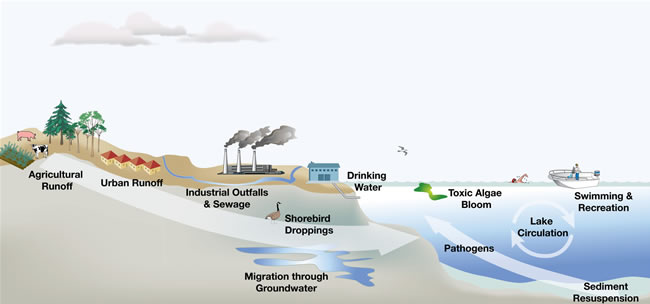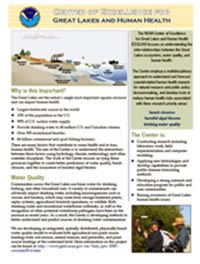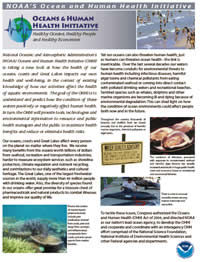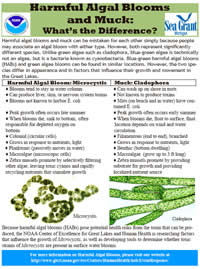The Center of Excellence for Great Lakes and Human Health (CEGLHH) focuses on understanding the inter-relationships between the Great Lakes ecosystem, water quality and human health. The Center employs a multidisciplinary approach to understand and forecast coastal-related human health impacts for natural resource and public policy decision-making, and develop tools to reduce human health risks associated with three research priority areas: beach closures, harmful algal blooms, and drinking water quality.
Why is this important?
The Great Lakes are the nation's single most important aquatic resource and can impact human health.
- Largest freshwater source in the world
- 10% of the population in the U.S.
- Over 500 recreational beaches
- 90% of U.S. surface drinking water
- Provides drinking water to 40 million U.S. and Canadian citizens
- $4 billion commercial and sport fishing business
Human health is profoundly affected by water quality in the Great Lakes. The lack of integrated scientific investigation on waterborne microbial pathogens at multiple scales has prevented a sound scientific risk-based approach for predicting and preventing waterborne disease occurrences.

There are many factors that contribute to ocean health and in turn, human health. The aim of the Center is to understand the interactions between these factors using hydrology, climate, meteorology and other scientific disciplines. The work at the Center focuses on tying these processes together to create better predictions of water quality, beach closures and the occurrence of harmful algal blooms.
Research Tasks
- Watershed Influences on Coastal Environments: Characterization of Sources and Loadings
- Virus Transport: Integrating Laboratory and Field-Scale Observations with Modeling
- Microbial Approaches, Tools, and Risk Models
- Near-Shore Transport: Modeling, Observations, and Beach Closure Forecasting
- Ecosystem Research and Harmful Algal Blooms
How was the Center started?
In 2004, the NOAA Office of Global Programs competitively funded the Center of Excellence for Great Lakes and Human Health at the Great Lakes Environmental Research Laboratory (GLERL) in Ann Arbor, MI. The Great Lakes Center is funded for five years and is one of three Centers in the United States (The other Centers are located at the Northwest Fisheries Science Center in Seattle, WA and Hollings Marine Laboratory in Charleston, SC).




